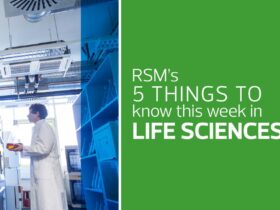Each week we highlight five things affecting the life sciences industry. Here’s the latest.
- Funding for women-led health tech ventures in Africa increased from 1% of total funding in 2022 to 31% in 2023, with the amount rising from $2 million to $52 million, reports Med-Tech News.
- Despite global economic challenges, the African health tech sector showed resilience, with a 17% year-on-year increase in deals, reaching a total funding of $167 million across 145 deals.
- A report highlights that pharmaceutical companies lose up to 6% of their revenue due to penalties, incorrect pricing and overpaid rebates resulting from inefficient customer data management.
- Biospace noted that despite the potential of advanced analytics and artificial intelligence, industry experts stress the importance of having accurate and well-managed data as a prerequisite for leveraging technology to address these issues.
- FierceBiotech reports that Medical Microinstruments’ Symani microsurgery robot has been granted de novo clearance by the Food and Drug Administration, following a successful $110 million fundraising round.
- The Symani system, a technology designed to enhance precision in surgeries involving small body parts, is the only platform of its kind in the United States, aiming to make open surgery less invasive.
- Genetic Engineering & Biotechnolgy News reports that the biopharma industry’s digital transition reveals a significant skills gap in data science, with particular shortages in integration, analysis, statistical modeling and machine learning.
- Despite advances in areas like automation and cybersecurity, the struggle to find data scientists hampers the industry’s ability to harness big data effectively, leading to a call for strategies to attract and retain talent in this critical area.
- A study found that most cancer drugs granted FDA’s accelerated approval fail to prove their benefits within five years, questioning the program’s effectiveness since its 1992 inception, primarily aimed at cancer treatments, reports CBS.
- Despite the program’s intent for rapid access to promising treatments, the study, published in the Journal of the American Medical Association, revealed that only 43% of drugs demonstrated clinical benefit in subsequent trials, raising concerns about the communication of uncertainties to patients.
For more insights in life sciences, check out RSM’s industry outlook.






Leave a Reply